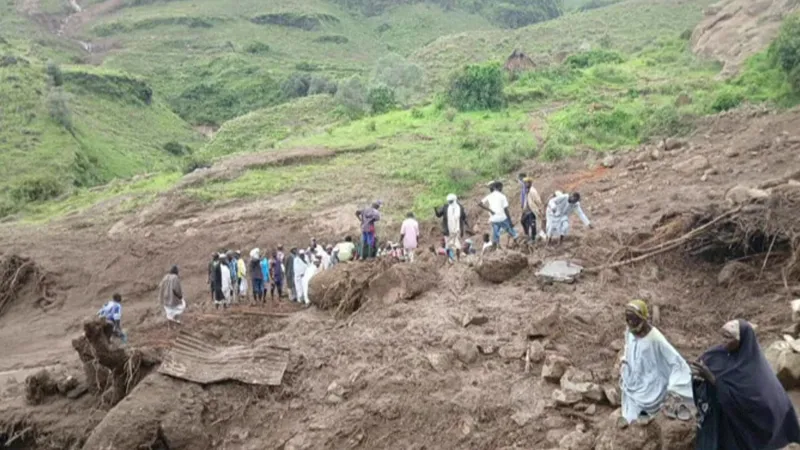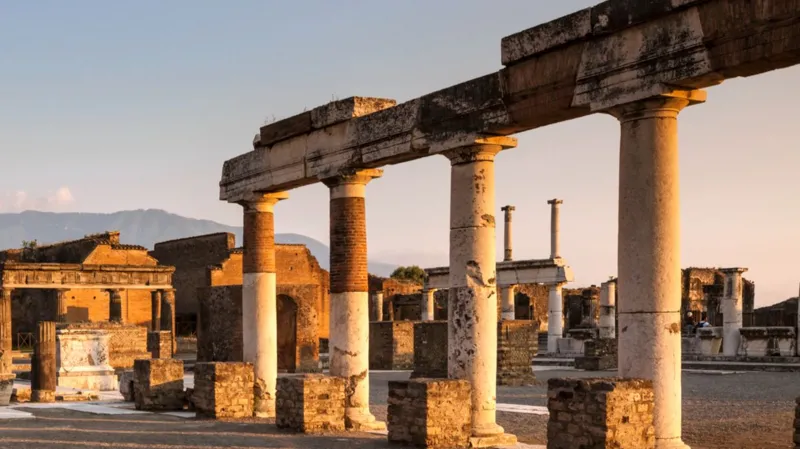What does recognising a Palestinian state mean?
The UK, Canada and France are planning to recognise Palestine as a state from September in a major policy shift.

The three countries have said they will make the formal announcement at the UN General Assembly - but the UK and Canada say the move could be stopped if Israel meets several conditions.
There are also stipulations for Hamas if it wants the recognition process to go ahead.
Here is what you need to know about the significance of recognising a Palestinian state, what Israel and Hamas have been told they must do, and the timing of the decision.
What does recognising a Palestinian state mean?
Under the Montevideo Convention of 1933, there are several criteria before Palestine can be recognised as a sovereign state under international law.
The process requires the state to have:
- a permanent population
- a defined territory
- an effective government and international relations
- formal diplomatic processes including embassies, ambassadors and treaties
Out of the 193 United Nations member states, 147 already recognise Palestine as a state as of March 2025.
That includes Russia, China and India, as well as more than a dozen in Europe, including Spain, Ireland and Norway.
How does the UN admit new member states?
Countries usually apply to the United Nations secretary-general, who sends the request to the Security Council for initial assessment and a potential vote.
Approval requires at least nine votes in favour and no vetoes by the UK, US, France, Russia or China.
If the Council approves the request, it goes to the General Assembly for approval, where a two-thirds majority is needed.
A state can't join the UN without the backing of both the Security Council and General Assembly.
What happened to the Palestinian application in 2011?
The Security Council looked at the application for several weeks to see if it satisfied the conditions for membership.
However, it was unable to reach a unanimous position so a formal vote never took place.
Even if it had cleared this step, the US said it was planning to veto the application.
Why have the countries acted now?
Sir Keir says the time to recognise Palestine is now, as it will have the highest impact, as the hope of a two-state solution - a "secure" Israel alongside a "viable" Palestinian state - is at risk.
He says it is part of an "eight-part plan", already discussed with France and Germany, but denies it represents a U-turn after pressure from Labour MPs, saying instead it was always part of the plan to recognise Palestine.
After addressing a UN summit on a two-state solution, UK Foreign Secretary David Lammy described what's been happening in Gaza as "horrific" and called for a ceasefire.
"The time has come to see those hostages released, and the time has come to abate the suffering of the Palestinian people, to get them the aid and medical equipment and supplies they need," he added.
Emmanuel Macron had been leaning towards recognising a Palestinian state for months as part of a bid to keep the idea of a two-state solution alive, despite pressure from other countries not to do so.
What is a two-state solution?
A two-state solution would see an independent Palestinian state established alongside the existing state of Israel - giving both peoples their own territory.
The Palestinians seek an independent state in the occupied West Bank, annexed east Jerusalem and Gaza, territories that have been occupied by Israel since the 1967 Six-Day War.
Israeli Prime Minister Benjamin Netanyahu and most of Israel's political class have long been opposed to Palestinian statehood, and argue that it would reward militants after the 7 October attacks launched by Hamas in 2023.
One of the biggest obstacles to a two-state solution would be deciding what the borders of a potential Palestinian state would be.
Many believe they should be the same ones that existed before 1967, but since then, increasing numbers of Israeli settlements have been established inside the West Bank, with around 600,000 Israelis now living there and in Occupied East Jerusalem.
What have Israel and Hamas been told to do?
When Sir Keir announced the UK would be joining France in recognising the state, he offered Israel an out, saying it could stop the move if it met the following conditions:
• Take substantive steps to end the "appalling situation in Gaza"
• Agree to a ceasefire
• Commit to a long-term sustainable peace - reviving the prospect of a two-state solution
• Allow the UN to restart the supply of aid
• There must be no annexations in the West Bank.
There are also conditions on the other side if Hamas wants a Palestinian state to be recognised.
Hamas has been told it must release all hostages, disarm, and publicly renounce any governing role in Gaza.
How have Israel and Palestinians responded?
Israel's Prime Minister Benjamin Netanyahu has strongly condemned the move, saying recognising a Palestinian state now would be a "launch pad to annihilate Israel - not to live in peace beside it".
His government says the decision "constitutes a reward for Hamas and harms efforts to achieve a ceasefire in Gaza and a framework for the release of hostages".
Meanwhile, Palestinian President Mahmoud Abbas in Jerusalem expressed "thanks and appreciation" to the Western countries.
After Canada's announcement, the Palestinian Authority's Ministry of Foreign Affairs said in a statement posted on X: "This courageous and principled decision marks a significant step towards justice, peace, and the long-overdue realisation of the Palestinian people's inalienable right to self-determination."
What about other countries?
After the UK's announcement, US President Donald Trump told reporters that recognising a Palestinian state would reward Hamas.
"You're rewarding Hamas if you do that. I don't think they should be rewarded," he said.
After France's announcement, Mr Trump said what Emmanuel Macron "says doesn't matter".
He went further after Mark Carney, the Canadian prime minister, making an announcement on Truth Social warning that recognising a Palestinian state "will make it very hard for us to make a Trade Deal with them. Oh' Canada!!!"
In response to France's decision, the German government said Berlin still backs a two-state solution but won't recognise a Palestinian state for now, instead stressing the need for a Gaza ceasefire, hostage release, and urgent humanitarian aid.
Australia's prime minister, Anthony Albanese, described the situation in Gaza as a "humanitarian catastrophe" and said his country is "committed to a future where both Israeli and Palestinian people can live in peace and safety within secure and internationally recognised borders".
Italy's foreign minister said the recognition of a Palestinian state must also recognise Israel as a state.
"A Palestinian state that does not recognise Israel means that the problem will not be resolved," Antonio Tajani told a meeting of his conservative Forza Italia party in Rome.
Spain, which already recognises Palestinian statehood, welcomed Mr Macron's announcement. Prime Minister Pedro Sanchez wrote in a statement on X: "Together, we must protect what Netanyahu is trying to destroy. The two-state solution is the only solution."
Saudi Arabia's foreign ministry also said it "commends this historic decision" and called on other countries to take "similar positive steps".
-SKY NEWS







